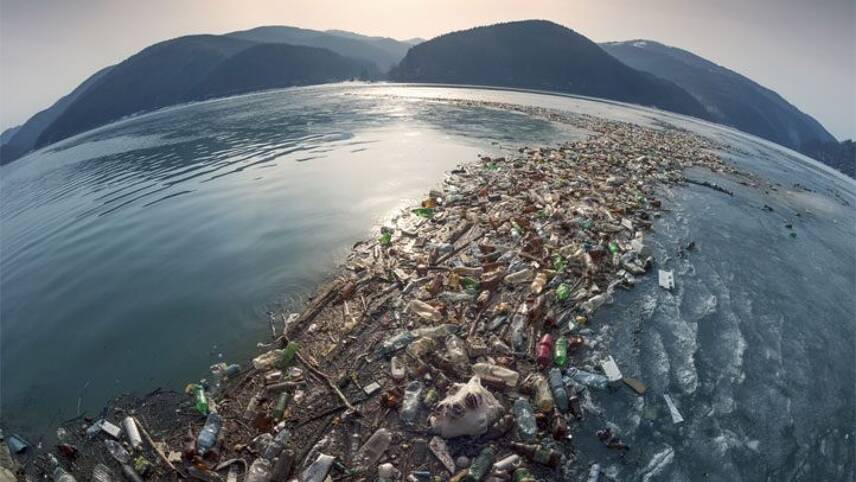Register for free and continue reading
Join our growing army of changemakers and get unlimited access to our premium content

Chemical companies
Published today (18 May) by Australian non-profit the Minderoo Foundation and supported by organisations including Wood Mackenzie and the Grantham Institute at the London School of Economics (LSE), the ‘Plastic Waste Makers index’ tracks waste back to the corporate producers.
According to the report, just 20 businesses can be traced back to more than half of the single-use plastic waste generated in 2019, with ExxonMobil and Dow named as the worst offenders.
Other firms in the study’s list of major plastic producers include Sinopec, Saudi Aramco, PetroChina, Brasken, Boreali, Total and INEOS. The list then extends to 100 businesses, which, collectively, cover more than 90% of annual global plastic production.
edie has reached out to ExxonMobil and Dow – the two firms named as the worst – for comment.
An ExxonMobil spokesperson said the company “shares society’s concern about plastic waste”. A statement sent to edie reads:” Plastic waste is part of a larger issue related to global waste management infrastructure. Nearly three billion people worldwide do not have access to proper waste collection or disposal systems. As a result, a significant amount of solid waste leaks into the environment. Plastics should not end up as litter, either in our oceans or anywhere else in the environment. Industry, governments, non-governmental organizations and consumers must work collaboratively to encourage appropriate recycling, reuse and recovery of plastic waste.
“ExxonMobil is taking action to address plastic waste by increasing plastic recyclability, supporting improvements in plastic waste recovery – for example, through our founding membership in the Alliance to End Plastic Waste – and minimizing plastic pellet loss from our operations. We are also working on advanced recycling solutions that create and capture value from plastic waste with opportunities for lower overall greenhouse gas emissions over the full life cycle of the plastic. In addition, minimizing pellet loss from our operations is integral to our commitment to responsible operations.”
The Minderoo Foundation report argues that, despite the low-plastic and plastic-free pledges made by many retailers in locations such as the US and UK in recent years, global plastic production is likely to rise by 30% within the next five years. The plastics sector will also become higher-carbon as well as higher-waste, the report warns, with incineration becoming a key source of emissions alongside extracting virgin fossil fuels for use to produce polymers.
These findings are similar to those drawn in a similar damning study by WWF back in early 2019. An additional driver, with Covid-19 in mind, the new report states, is the fact that oil prices have tumbled as transport demand has shrunk.
Minderoo Foundation is calling for nations to implement mandatory ‘plastic waste footprint’ disclosures for petrochemical companies. This requirement, the report states, should be coupled with measures to help encourage recycling. It forecasts that, at current rates, just 2% of the plastic produced globally in 2025 will be recycled.
Financing the plastics crisis
As well as the world’s biggest plastic producers, the Minderoo Foundation report assesses which financial firms are the most heavily invested in the sector.
Overall, the 20 banks listed provide more than 60% of the commercial finance, the report states. The banks are Barclays; HSBC; Bank of Amercia; Citigroup; JP Morgan Chase; Mitsubishi UFJ Financial; SMBC Group; Mizuho Financial; UniCredit; BNP Paribas; Credit Agricole; ING Group; Societe Generale; Deutsche Bank; ScotiaBank; Credit Suisse; the Toronto-Dominion Bank; the Industrial & Commercial Bank of China; the Royal Bank of Canada and NatWest Group.
Asset managers and investors are also under fire, with the likes of Vanguard Group, BlackRock, Capital Group and State Street accused of investing more than 10% of shareholder’s equity from businesses producing polymers.
The findings echo those of a report from NGO Portfolio Earth in January, which stated that banks have provided more than $1.7trn of unconditional finance to business across the plastics value chain sine 2015. Even though many big-name banks are increasingly divesting from fossil fuels – particularly for electricity generation – the trend has been slower for plastics, the report argued.
Minderoo Foundation is urging the named banks and investors to divest from companies adding new fossil-fuel-based plastic production capacity, and those without clear plans to transition to more circular, lower-carbon alternatives. Capital could be re-allocated to firms using recycled plastic feedstocks or offering recycled content or recycling systems.
“The plastification of our oceans and the warming of our planet are amongst the greatest threats humanity and nature have ever confronted,” Minderoo Foundation chair and co-founder Dr Andrew Forrest said.
“Global efforts will not be enough to reverse this crisis unless government, business and financial leaders act in our children’s and grandchildren’s interests
“This means: stop making new plastic and start using recycled plastic waste, it means re-allocate capital from virgin producers to those using recycled materials, and importantly, it means redesign plastic so it does no harm and is compostable, so like every other element, it returns to its original molecules, not nano-plastics. And we must act now. “
Sarah George


Please login or Register to leave a comment.